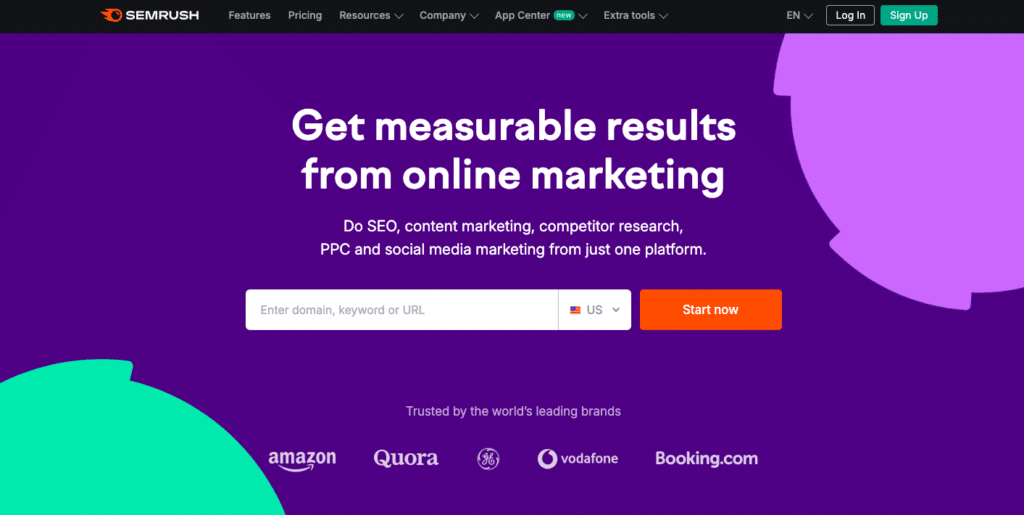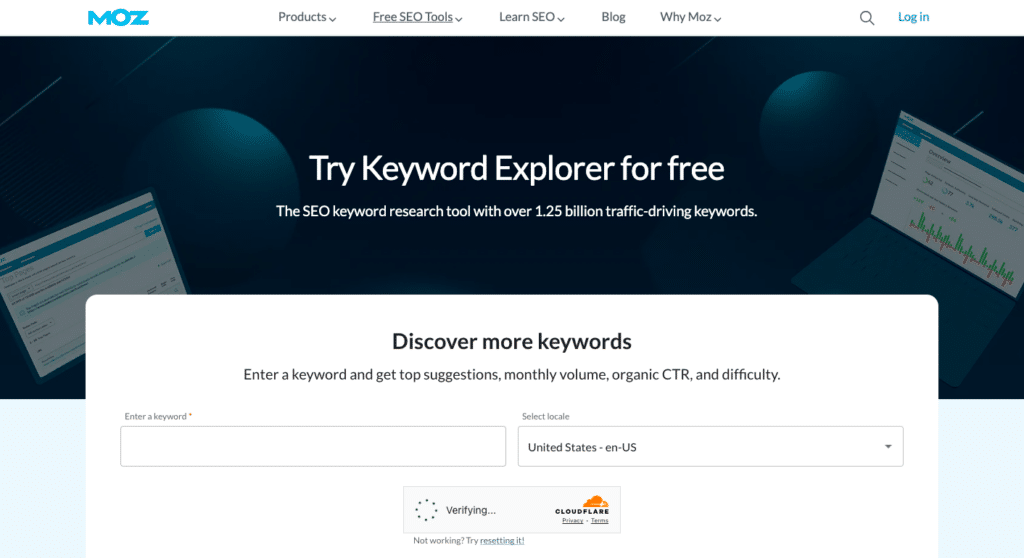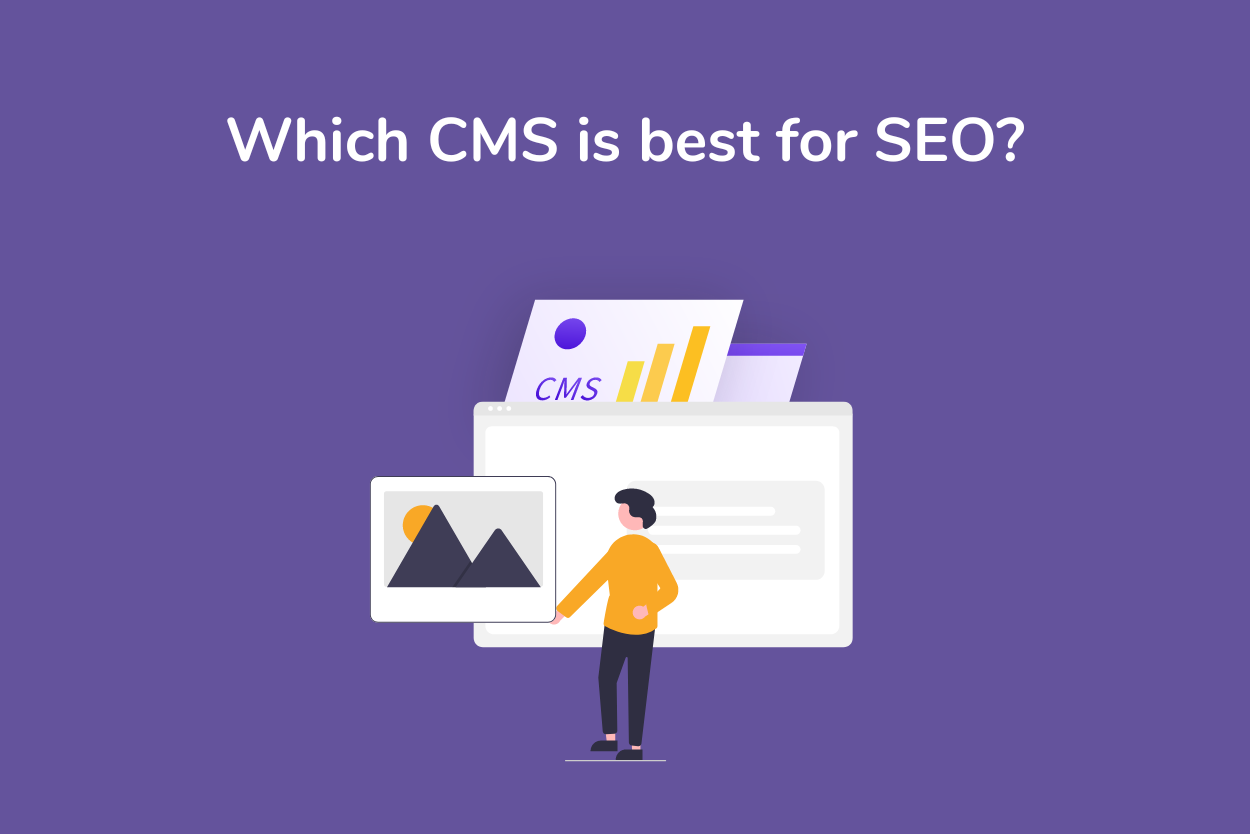
In today’s digital landscape, Keyword research remains at the core of any successful SEO strategy, particularly for IT companies. With an increase in demand for IT services, the competition to be visible on the Internet is increasing proportionally.
49% of marketers report that organic search has the best ROI of any marketing channel.
To stand out, IT companies need to target the right keywords that align with their services and audience needs. This blog will delve into what keyword research is, its importance for IT companies, and provide actionable strategies and tools to help your IT business rank #1 in 2025
What is Keyword Research?
Keyword research is the process of identifying and analyzing the terms and phrases that people use in search engines. These keywords are crucial because they guide the content creation process, ensuring that your website aligns with what potential customers are searching for.
Effective keyword research involves understanding search intent, competition levels, and the search volume of potential keywords.
Why is Keyword Research Important for IT Companies?
For IT companies, keyword research is particularly important because the industry is highly specialized and competitive. IT companies often offer niche services that require targeted marketing efforts to reach the right audience. Effective keyword research helps in:
- Improving Visibility: By targeting the right keywords, IT companies can ensure that their website appears in front of the right audience, leading to increased traffic and visibility.
- Generating Quality Leads: Targeted keywords attract visitors who are more likely to convert into leads or customers, as they are actively searching for the services you offer.
- Staying Competitive: In a competitive industry like IT, staying ahead of the competition requires understanding the keywords they are targeting and finding gaps or opportunities for your business.
10 Keyword Research Methods for IT Companies to Rank in 2025
1. Understand Your Buyer Personas
Focus on keywords that resonate with the specific needs and search behaviors of your target audience. By aligning your keywords with their pain points and search intent, you ensure that your content attracts the right kind of traffic, leading to higher conversion rates.
2. Leverage Long-Tail Keywords
Utilize specific, niche phrases like “managed IT services for small law firms” that have lower competition but higher conversion rates. Long-tail keywords help you attract more qualified leads who are closer to making a purchase decision.
3. Analyze Competitor Keywords
Use tools like SEMrush to identify the keywords your competitors are ranking for and spot opportunities to outperform them. Analyzing competitor strategies allows you to find gaps in their approach and tailor your content to fill those voids.
4. Use Google Suggest and Related Searches
Explore Google’s auto-suggestions and related searches to uncover additional keyword ideas based on what real users are searching for. These suggestions can help you expand your keyword list with terms that are trending and relevant.
5. Explore Forums and Communities
Monitor discussions on platforms like Reddit, Quora, and industry-specific forums to discover the language your target audience uses. Engaging with these communities provides insights into the terms and topics that matter most to your potential customers.
6. Consider Local SEO
Incorporate local keywords with geographic identifiers, such as “IT support in Austin,” to capture search traffic from users looking for services in specific regions. Local SEO not only improves visibility but also enhances the relevance of your content to local searchers.
7. Utilize Customer Feedback
Gather insights from your sales and customer service teams to identify the language your customers use when describing their needs and challenges. This feedback can inform your keyword strategy, ensuring it aligns with how your customers actually talk about your services.
8. Content Gap Analysis
Identify keywords where competitors rank but you don’t, and create content to address these gaps. By filling these content gaps, you can attract new traffic and improve your chances of ranking higher in search results.
9. Use Keyword Research Tools
Leverage tools like Ahrefs, Moz, and Google Keyword Planner to uncover high-value keywords with the best balance of traffic potential and ranking difficulty. These tools provide critical insights into search volume, competition, and keyword relevance.
10. Constantly Re-Evaluate and Update
Regularly review and update your keyword strategy to stay aligned with evolving trends and search behaviors. This ongoing adjustment ensures that your content remains competitive and continues to drive valuable traffic to your website.
How to Choose the Best Keywords for Your IT Company
Choosing the right keywords involves balancing several factors to ensure that your SEO strategy is both effective and sustainable.
Relevance
The keywords you choose should be highly relevant to your services. If you specialize in cybersecurity, focus on keywords that directly relate to that niche rather than broad IT terms.
Authority
Google favors authoritative content. Ensure that your website is a trusted source by creating in-depth, high-quality content around your chosen keywords.
Volume
While high-volume keywords can drive significant traffic, they are also more competitive. A balance between high-volume and niche keywords often yields the best results.
Keyword Research Example for an IT Company
Scenario:
Your IT company specializes in cybersecurity services for small and medium-sized businesses (SMBs). You want to attract potential clients searching for these services.
Step 1: Start with Broad Keywords
Begin with broad terms like:
- “Cybersecurity services”
- “IT security solutions”
Step 2: Use Keyword Research Tools
Tools like Ahrefs and SEMrush reveal data on search volume and competition. Example results:
- High competition for “Cybersecurity services.”
- Related keywords: “cybersecurity services for SMBs,” “affordable cybersecurity services.”
Step 3: Identify Long-Tail Keywords
Focus on specific phrases that are less competitive:
- “Cybersecurity services for small businesses”
- “Managed IT security services for retail businesses”
Step 4: Analyze Competitor Keywords
Discover keywords competitors rank for, such as:
- “Managed cybersecurity services”
- “IT security consulting”
This approach helps your IT company target relevant audiences, improving search rankings and lead generation.
Best Keyword Research Tools for Your Business in 2025
1. Ahref

Ahrefs is renowned for its comprehensive keyword data, offering in-depth analysis on competition levels and search intent. This tool is particularly valuable for businesses that want to dive deep into keyword research, uncovering not just the volume but also the strategic potential of each keyword.
Pricing starts at: $129/month
2. SEMrush

SEMrush excels in competitor analysis, making it an excellent choice for identifying keyword opportunities that your competitors may be capitalizing on. It provides a detailed view of the competitive landscape, helping businesses to refine their SEO strategies based on what’s working in their industry.
Pricing starts at: $139.95/monthly
3. Moz Keyword Explorer

Moz Keyword Explorer is another powerful tool that provides keyword suggestions and insights into search difficulty. It helps businesses understand how challenging it may be to rank for certain keywords, enabling them to prioritize efforts on those with the best balance of difficulty and potential traffic.
Pricing starts at: $49/month
How to Handle & Track Your Keyword Rankings
Monitoring and adjusting your keyword strategy is essential for maintaining and improving your search engine rankings. Utilizing rank tracking tools like Ahrefs, SEMrush, and Moz allows you to monitor your keyword performance over time and identify any fluctuations that may require attention.
Setting up Google Search Console is also crucial, as it provides valuable insights into your website’s performance in Google Search, including which keywords are driving traffic to your site. To keep your content relevant and aligned with evolving search trends, it’s important to regularly update it with new keywords and fresh information.
Additionally, keeping a close eye on your competitors’ keyword rankings can offer strategic insights, allowing you to adjust your approach and stay competitive in the market. By staying proactive and continuously refining your keyword strategy, you can ensure sustained visibility and success in search rankings.
Conclusion
Conducting keyword research is one of the fundamental actions toward the success of an SEO campaign for any IT company seeking to be noticed within this very competitive digital space. By understanding and applying effective keyword research, your IT company will increase online visibility and attract the target audience toward more conversions.
The key is to focus on relevance, authority, and search volume while utilizing the best tools and practices available in 2025. Remember, keyword research is not a one-time task but an ongoing process that requires constant attention and adaptation. Stay informed, keep refining your strategy, and watch your rankings and business grow.



